This has enabled me to observe first hand the efforts that publishers do, or do not go to, to create American editions of British books, and vice versa. Here are a few examples:
- The publishers that make no changes whatsoever, other than publisher details. As we shall see, this is a surprisingly sensible approach.
- The publishers that change everything. Now, this might seem a sensible approach, but unless you are very careful, this can go horribly wrong and result in an unnatural hybrid. Changing spelling isn't necessarily a big deal, but when you get to vocab and grammar, you are on dangerous ground. Let's assume that our book is set in the UK - as, let's face it, many British novels are. It may be fair enough in narrative to say: 'The child sat on the stoop eating candy'. Not in dialogue. A British child would not say: 'I'm sitting on the stoop eating candy'. A British child would say: 'I'm sitting on the step eating sweets.' There's a huge distinction there between adding an American perspective and creating a monster that doesn't work in either country.
- The publishers that change a few things here and there to add 'a flavour'. Again, an example and this is my absolute favourite. A book set in Wales, featuring a Welsh family who'd been there for generations and throughout the novel a little boy called his mother 'Mom'. No, no, no. I've seen this a couple of times in US editions of UK novels, but interestingly I've never seen it the other way. Perhaps publishers have the sensitivity to realise that if a novel is set in the US they can keep 'mom', because British readers will understand that this is 'American' for 'mum'. But do they really have the insensitivity to believe that this is not true in the opposite direction? That an American adult would not realise that a British kid using the word 'mum' is not merely making a repeated mistake?
And if anybody has noticed anything similar in their reading, I'd love to hear about it.

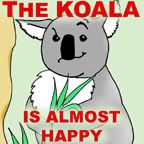
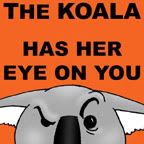


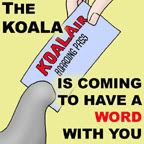
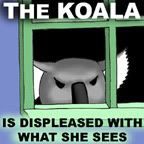

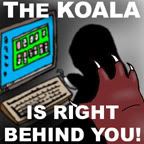
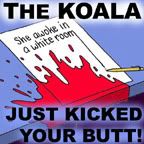

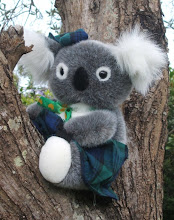
13 comments:
Having lived in New Zealand and Oz for quite a few years, I switched to "Mum" whan talking of Mum, but still say Momma when addressing Mum...
My fellow Americans find this weird.
I hate this kind of cultural wazzery, and sad to say it, Americans do seem to have a habit of momming up the previously unmommed. One day I swear I will slay the director of Thomas & The Magical Railroad.
And aren't memories and triggers such a funny old thing. I write that and I think of a fafamily holiday in Spain in 1976 wheere we all sat round the telly howling out loud at an episode of Starsky & Hutch overdubbed in French. I haven't thought about that one for years...
I prefer to keep the cultural flavor of the novels I read, but that's not always possible. I got the French edition of the first 2 Harry Potter books with the insane idea that it would help me learn French. Did notice a lot of the names are changed, but there was a name discussion recently. Stephen Parrish's blog, I think. Not sure. The main thrust was that Richard Smith could be called Dick, Dickie, Rickie, Smith, etc. and people from other countries get lost not knowing these are all one person.
I think that changing the editorial decisions to Americanify a British book makes an assumption of stupidity in the average American reader. If there is any worry about confusion this can be allayed by the addition of a glossary at the back of the book. To actually change the language used impacts on the authenticity of the writing and patronises the reader.
Justine Larbalestier has written about this subject often in her blog. In her Magic or Madness trilogy the action flipped from Sydney to New York and she changed the spelling and language depending on the place and who was speaking. It also had the best glossary of terms at the back. I think that this gave her novels international appeal and bridged cultural understanding beautifully.
Y'know, I've always assumed UK and US editions of a book would be identical in terms of content. Things like titles change all the time, but I thought what's between the covers would stay the same.
Hmm.
BTW, Oz will be getting the UK edition of The Twelve. :)
Actually, we Americans would say "I'm chillin on the porch wid da mouth fulla snizzle yo." But we're half illiterate so it's a moot point.
I think changing the "flavours" to "flavors" and vice versa is fine, but personally I like trying to figure out all the slang.
There is no doubt things are dumbed down for us Americans. On the one hand I get all indignant about it, on the other... I look around and understand it. There was that whole Harry Potter and the Philosopher's/Sorcerer's Stone thing. The irony there is that the kids--the group it was written for--would've understood, but the adults would've needed it explained. And some still did anyway.
Hi Scott from Oregon! Long time no see!
Ah, Whirl, as ever you have exactly the right word in your repertoire.
Bonjour Sarah! I've done this so many times that I have an entire shelf in my bookcase devoted to Dutch, French and German novels, mostly unread.
Janey, I have a story that places an American girl in Australia. She calls her mother 'mom' – because she would. The Aussies call their mother 'mum' - because they would. The American girl also uses American expressions, where the others use Aussie. So I love Justine Larbalestier's approach. I just don't know that I trust my knowledge of US spelling enough to handle two spelling systems in one book!
Conduit, good, glad we're getting the UK version. Keep an eye on the US one!
BT, on this occasion your vocab eclipses even Whirlochre's.
I have a copy of The Count of Monte Cristo in French that I've only opened once. I'm sure I'm learning French from that somehow.
My first reaction was "dang, this pisses me off." After reading Janey's comment, however, I thought a bit more about it. The appropriateness of Americanization in particular might depend upon the target reader.
There really are a large number of Americans who are very "particular" about how things should be, for lack of a better word. Even in video formats, there are still people who think that if you get the letter box version of the movie, you know, the actual way it was made and shown in the theater, that someone's chopped off the top and bottom sections of the movie. One could get all up in arms over this mistaken belief and how they should want to see the movie the way it was actually made, but the intelligent companies who just want to make some money instead chop off the sides of the film for real and expand it to fill the TV screen like some of their customers want.
If a book's target readers really can't handle 'mums' and 'ice lollies', sell 'em what they want. I guess one difference between DVDs and books, however, is that with the DVD, you can almost always get the real movie if you want. But there's usually only one version of a novel.
I guess I wouldn't be surprised if publishers think Americans are dumber than Brits.
LOL @ BT! I'm still laughing!
I have nothing intelligent to offer. As long as the books have good pictures, and you know what I mean...
hehehehe
:-)
Sorry for the silliness.
Paca, perhaps you should write your dissertation on the 'absorption technique' of learning a foreign language. You make a good point - give the market what it wants, whether you like it or not, and then they may buy.
Hi Diesel! Um, Chris...
I absolutely think the writing should stay in the world it came from - British books should stay British, and American readers should figure out what the words mean by extrapolation and a little thing called reader intelligence.
Imagine if Dickens had been Americanized. Makes me shudder.
Or Jane Austen!
Post a Comment